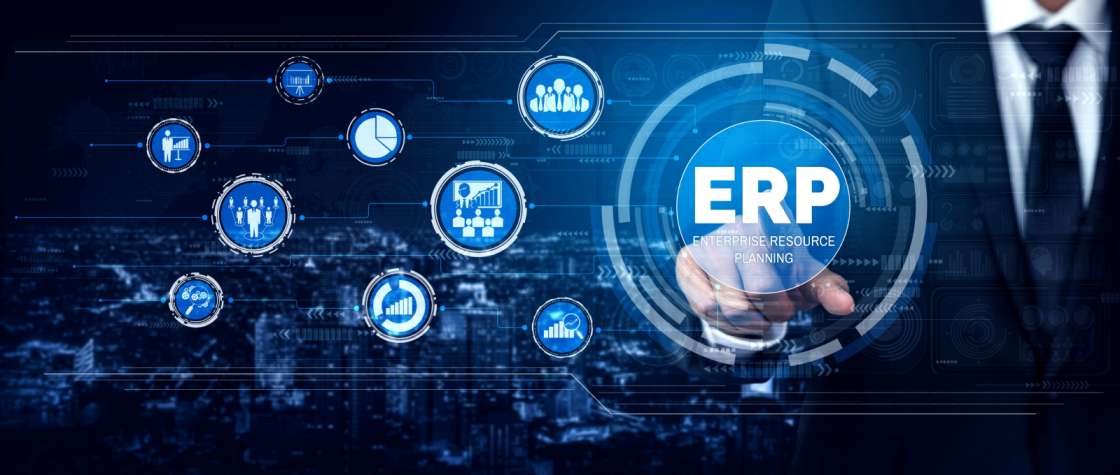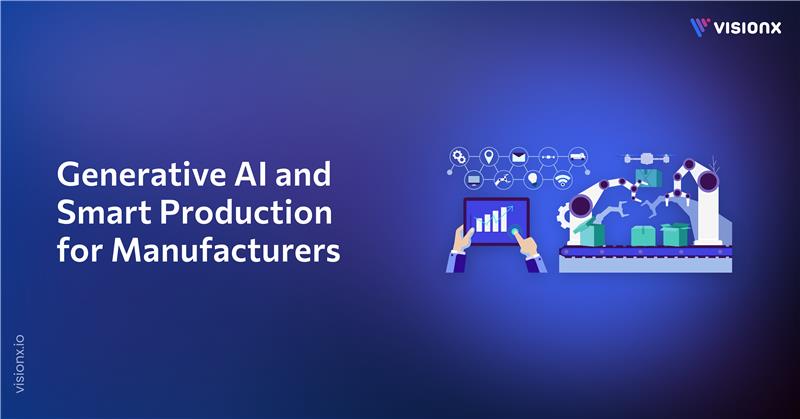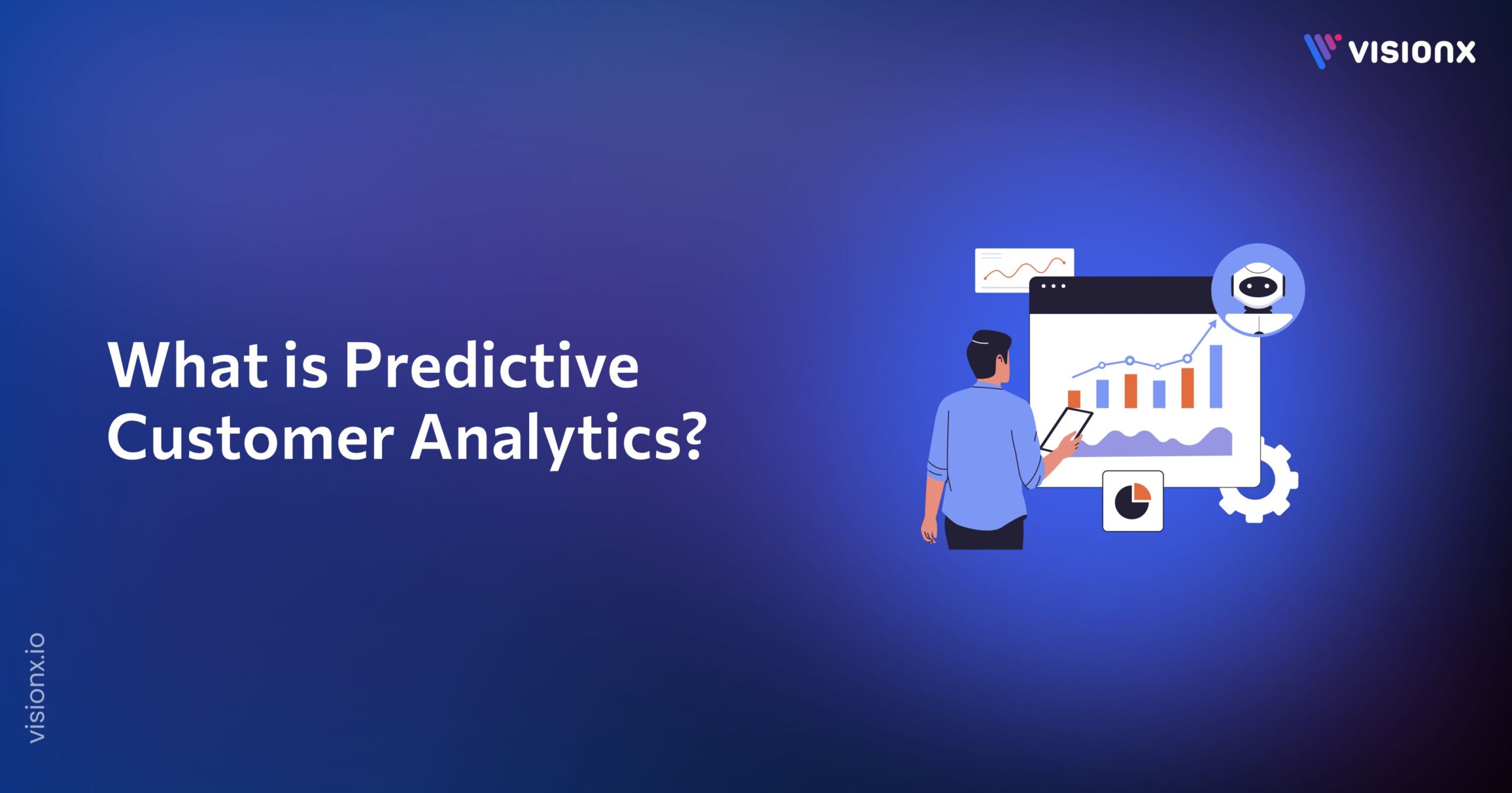In today’s rapidly evolving business landscape, being agile, efficient, and consistent is paramount. Many often marvel at how global giants, with their intricate networks of operations, maintain such smooth and synchronized workflows. How do these conglomerates ensure the machine’s right gear is always engaged and everything flows smoothly?
The unsung hero behind the scenes, streamlining operations and ensuring coordination, is often an ERP system. With the growth of digital transformation, the role of ERP in driving business efficiency and competitiveness has become more pronounced than ever.
What is an ERP System?
ERP stands for Enterprise Resource Planning. But what does that really entail? At its core, ERP is a comprehensive software framework. Its primary function is to integrate various business processes – like finance, HR, supply chain, and customer relations – and various procedures across an organization into one cohesive environment. This integration facilitates the flow of real-time information across departments.
To visualize its significance, think of an ERP system as the central nervous system of a corporate body. It connects all departments, ensuring that information from one limb (or department) is available and understood by the other, allowing the entire entity to respond and act in harmony.
Importance of ERP Systems
The modern business environment is characterized by data-driven decision-making. In such a scenario, having fragmented or archived data can spell disaster. By integrating various data sources, an ERP system ensures a single source of truth. Just as a conductor ensures every musician in an orchestra is on the same page, leading to a harmonious performance, an ERP system provides every department in a company with access to consistent, real-time data. This boosts efficiency, enhances collaboration, and promotes a culture of informed decision-making.
Furthermore, with businesses evolving and adapting at a breakneck pace, the agility provided by ERP systems ensures they remain ahead of the curve, ready to embrace change. In essence, ERP is the backbone supporting businesses, allowing them to rise to the challenges of the modern market and turn them into opportunities.
Key Components of ERP
While it’s tempting to see ERP as just another software application, it’s more like a multi-faceted toolkit. Think of ERP as a Swiss Army knife for businesses, each tool (or module) specifically designed for a unique purpose. These modules ensure that every aspect of a company, from finances to customer interactions, runs seamlessly. To help break it down, let’s dive deeper into the primary modules that make up a robust ERP system:
Financial Management
For any business, regardless of size, keeping a keen eye on the financials is critical. This is where the financial management module of ERP systems comes into play. It’s like the brain behind all financial operations. From basic tasks like tracking daily expenses and income to more complex ones like managing assets and liabilities, this module handles it all.
- Accounting: Record and manage all monetary transactions, ensuring every penny is accounted for.
- Analytics: Delve deep into financial data to gain insights, helping in future financial planning and strategies.
- Budgeting: Assist in creating and managing financial plans, ensuring the business stays on track.
- Risk Management: Identify and mitigate potential financial risks, safeguarding the company’s assets and reputation.
Human Resource Management
Employees are more than just workers; they are the lifeblood of a business. The HRM (Human Resource Management) module of an ERP ensures they’re taken care of.
- Recruitment: Simplify the hiring process by tracking applicants and managing interviews.
- Payroll: Make sure everyone gets paid on time and accurately, keeping track of leaves, taxes, and other deductions.
- Training: Monitor employee skills and manage training programs, ensuring the workforce remains competent and updated.
- Performance Evaluation: Track and assess employee performance, ensuring it aligns with company goals.
Supply Chain Management
Have you ever marveled at a product’s journey before it reached your doorstep? The supply chain management module is the unsung hero, ensuring a smooth journey.
- Inventory Management: Keep tabs on products or materials, ensuring there’s neither a shortage nor an excess.
- Order Processing: Track and manage every customer order, from placement to delivery.
- Supplier Management: Maintaining a harmonious supplier relationship ensures timely and cost-effective materials sourcing.
- Logistics: Oversee the transportation and delivery of products, making sure they reach the right place at the right time.
Customer Relationship Management (CRM)
In today’s competitive landscape, merely attracting customers isn’t enough; retaining them is the key. The CRM module serves as the bridge between businesses and their customers.
- Sales: Track leads, manage customer accounts, and forecast sales trends.
- Marketing: Plan and execute marketing campaigns, targeting potential customers effectively.
- Customer Support: Address customer queries, complaints, or feedback promptly.
- Analytics: Dive into customer data to gain insights, leading to improved products, services, and customer interactions.
Who are the primary users of the ERP System?
Enterprise Resource Planning (ERP) systems are designed to serve a wide range of users within an organization. The primary users of ERP systems can be categorized into several roles or departments, including:
- Management and Executives
Senior executives, including CEOs, CFOs, and COOs, use ERP systems for high-level decision-making. They rely on ERP data and analytics for strategic planning, financial forecasting, and overall business performance assessment.
- Finance and Accounting
ERP systems are heavily used by finance and accounting teams for tasks such as financial reporting, budgeting, payroll processing, accounts receivable and payable management, and compliance with financial regulations.
- Human Resources
HR departments use ERP systems for personnel management, including employee records, payroll, benefits administration, recruitment, and performance evaluations.
- Operations and Production
Manufacturing and operations teams utilize ERP to manage production schedules, inventory levels, supply chain coordination, and quality control. This includes production planners, inventory managers, and shop floor workers.
- Sales and Marketing
Sales and marketing teams rely on ERP data to analyze customer behavior, manage leads and customer information, track sales orders, and forecast sales trends.
- Supply Chain and Procurement
Supply chain and procurement professionals use ERP systems to manage supplier relationships, procurement processes, and inventory levels to ensure a smooth flow of goods and materials.
- Customer Service
ERP systems can also be integrated with customer relationship management (CRM) modules, which customer service teams use to track customer interactions, manage service requests, and improve customer satisfaction.
- IT and System Administrators
IT departments play a crucial role in maintaining and configuring ERP systems. System administrators ensure the security, reliability, and performance of the ERP software.
- Warehouse and Logistics
Warehouse and logistics personnel use ERP systems to efficiently manage inventory, shipping, and distribution.
- Quality Assurance
Quality control and assurance teams may use ERP systems to monitor product quality and compliance with industry standards and regulations.
- Project Managers
In organizations with project-based work, project managers can utilize ERP systems to plan, track, and manage project resources, budgets, and timelines.
- Business Analysts
These professionals extract valuable insights from ERP data, providing reports, dashboards, and analytics that inform decision-making across various departments.
- Employees
Depending on their roles and permissions, many employees may access ERP systems to perform tasks such as time tracking, expense reporting, and requesting leave.
Examples of Popular ERP Systems
Navigating the vast sea of ERP systems can feel overwhelming, especially with the countless options available. But like in any industry, specific names stand out due to their longstanding reputation, innovative features, and widespread adoption. Let’s learn about some of the most recognized ERP systems that many businesses across the globe rely upon:
SAP
When people talk about ERP, one of the first names that often comes to mind is SAP. So, what’s the story behind this heavyweight?
SAP, which stands for Systems, Applications, and Products in data processing, has existed since the 1970s. With its German roots, it has grown into a global behemoth in the tech industry. SAP is lauded for its comprehensive application suite covering almost every aspect of business management. From finance to logistics, they’ve got it all covered.
Whether you’re a multinational corporation or a local startup, SAP has solutions tailored for various scales and industry verticals. It’s like a one-stop shop for all ERP needs. Continuously evolving, SAP has been at the forefront of embracing new technologies like AI and machine learning to enhance its offerings.
Oracle ERP Cloud
Oracle, while often synonymous with databases, has ventured far beyond that realm. Their ERP Cloud system is a testament to their forward-thinking approach.
Oracle ERP is a tech giant from sunny California and has been a significant player since the late 1970s. As the name suggests, Oracle ERP Cloud is designed for the modern world. With businesses moving to the cloud for flexibility and scalability, Oracle’s ERP solution ensures they’re well-equipped for this digital era.
Businesses can choose the modules they need, making it a cost-effective solution that grows with the company. Known for seamless integration capabilities, Oracle ERP Cloud can efficiently work with other business applications, ensuring a smooth workflow.
Microsoft Dynamics 365
The tech mammoth Microsoft, famous for Windows and Office, also has a strong presence in the ERP landscape. As a branch of the Microsoft family tree, Dynamics 365 enjoys the legacy and robustness associated with one of the world’s tech leaders.
Dynamics 365 is more than just an ERP. It’s a blend of ERP and CRM, ensuring businesses have a holistic solution to manage internal processes and customer relations. Given its Microsoft lineage, Dynamics 365 seamlessly integrates with other Microsoft products, such as Office 365.
Imagine the ease when your ERP system talks effortlessly to your email, calendar, and spreadsheets! With a familiar interface, especially for those accustomed to other Microsoft products, Dynamics 365 reduces the learning curve for users.
Benefits of Implementing an ERP System
In business operations, implementing an ERP system can often be likened to acquiring a magic wand. This might sound exaggerated, but the transformative effects of ERP systems on businesses are genuinely astounding. Let’s unpack some of these benefits, showcasing why so many organizations, from fledgling startups to multinational giants, are gravitating towards ERP solutions:
1. Streamlined Business Processes
- Simplicity in Complexity: Even the most intricate business operations can be streamlined using ERP, turning a maze of tasks into a straight path of productivity.
- Automation: Many repetitive and time-consuming tasks, which would otherwise consume valuable hours, are automated, freeing up staff for more strategic roles.
- Uniformity: With standardized processes, there’s less room for errors and inconsistencies, leading to smoother operations and higher-quality outputs.
2. Enhanced Decision Making
- Real-Time Data: ERP systems provide real-time insights, ensuring decisions are made based on the latest data.
- Holistic View: Decision-makers get a 360-degree view of business operations instead of siloed information, ensuring well-informed choices.
- Predictive Analysis: With advanced analytics, businesses can understand their current state and predict future trends, enabling proactive strategies.
3. Improved Collaboration
- Unified Platform: ERP systems are a central hub where all departments can access and share necessary information.
- Transparency: A shared database increases transparency across teams, leading to better trust and cooperation.
- Instant Communication: The days of waiting for inter-departmental memos are gone. Real-time updates ensure everyone is on the same page, promoting agility.
4. Cost Savings
- Optimized Resources: ERP systems ensure resources, whether human or material, are used to their fullest potential, minimizing wastage.
- Reduced Operational Costs: With streamlined processes and automation, operational inefficiencies often lead to additional costs.
- Strategic Spending: With clear financial insights, businesses can allocate budgets more strategically, getting the best bang for their buck.
5. Enhanced Customer Service
- Centralized Customer Data: No more sifting through piles of data to understand a customer. With centralized information, businesses get a clear picture of each customer, aiding in personalized interactions.
- Faster Response Times: With streamlined processes, customer queries and complaints are addressed more swiftly, increasing satisfaction.
- Informed Interactions: With access to historical customer data, businesses can have more meaningful and informed interactions, often anticipating needs before they are voiced.
6. Scalability and Flexibility
- Adaptability: As businesses grow and evolve, ERP systems can be modified to cater to new requirements, ensuring longevity.
- Modular Approach: Most ERP systems come with a modular design, meaning businesses can add or remove modules as per their evolving needs.
- Future-Proofing: Investing in an ERP system is like planting a tree that will provide shade in the future. It ensures that as the market changes, the business can adapt without undergoing massive overhauls.
ERP Integration Benefits
Integration in an ERP system is akin to weaving various threads into a cohesive tapestry. The beauty and strength of this tapestry come from the interconnectedness of each strand. Let’s delve deeper into the profound benefits of such integration:
- Eliminating Redundancy: Businesses often input the same data into multiple systems before ERP. This not only consumed precious time but also increased the risk of errors. With ERP integration, data is entered once and is available across all connected modules, slashing redundancy and boosting efficiency.
- Unified Data Platform: With all departments accessing and updating a centralized database, there’s a single source of truth. This ensures consistency and accuracy across the board, from inventory levels to customer interactions.
- Enhanced Communication: Remember the childhood game of ‘Chinese whispers’ where a message gets distorted as it passes from one person to the next? In business, distorted or delayed communication can be costly. ERP integration ensures that all departments are tuned into the same frequency, facilitating precise and immediate communication.
- Effortless Collaboration: Gone are the days of departments working in silos. ERP promotes a collaborative environment where information flows freely, enabling teams to collaborate seamlessly towards common objectives.
Conclusion
Businesses can sometimes feel like a complicated maze. ERP systems act as helpful guides in this complexity, showing how to work better, be more organized, and grow. Whether you’re a small business starting or a vast company operating worldwide, ERP systems are known to be helpful. They work like a compass and a map, helping companies to go in the right direction and giving them the tools to plan their journey.
ERP systems are like magic in a world where being able to change and see the future is significant. They turn problems into chances for success. Whether you’re just starting your business adventure or have been doing it for a while, an ERP system is ready to help you succeed.


